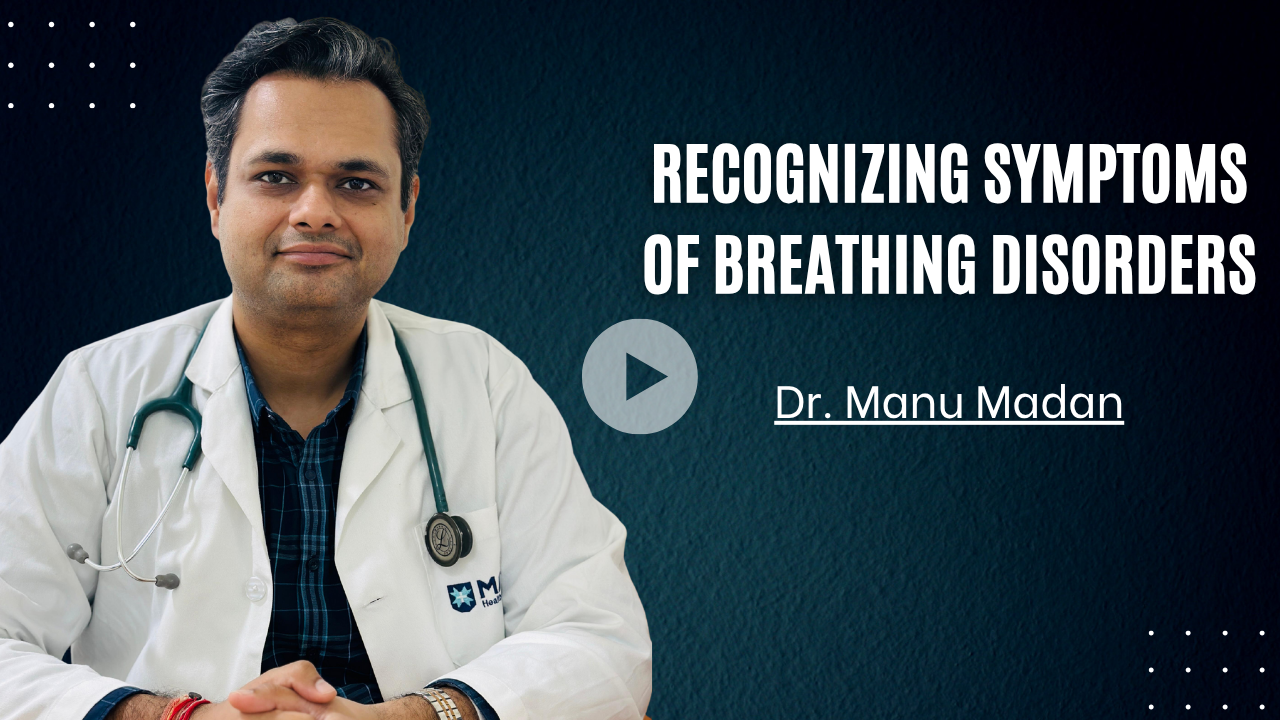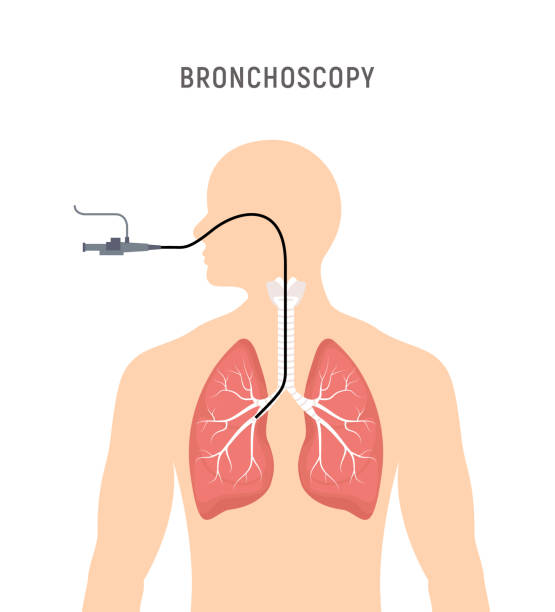
ILD Treatment in Saket, Delhi
Interstitial Lung Disease (ILD) is not just another lung problem—it is a serious condition that can quietly impair your lung function and, over time, affect your overall health and quality of life. Many patients delay seeking care, attributing breathlessness or a persistent cough to aging or fatigue. Unfortunately, ILD often progresses silently until daily activities become difficult.
Dr. Manu Madan, a highly respected ILD specialist and pulmonologist in Saket, Delhi, provides comprehensive, evidence-based care for patients suffering from various forms of ILD. With his expertise in advanced diagnostic tools like EBUS, cryobiopsy, and high-resolution CT imaging, and a focus on personalized treatment plans, Dr. Madan ensures patients get timely and effective care to manage and slow the progression of this complex disease.
Before moving forward, let’s understand the illness.
What is Interstitial Lung Disease (ILD)?

Interstitial Lung Disease refers to a diverse group of over 200 lung disorders that affect the interstitium—the thin tissue lining the air sacs of the lungs. This damage results in inflammation and fibrosis (scarring), making it difficult for oxygen to move from the lungs into the bloodstream.
Some common types of ILD include:
Idiopathic Pulmonary Fibrosis (IPF)
Hypersensitivity Pneumonitis
Connective Tissue Disease-related ILD
Sarcoidosis
Occupational Lung Diseases (like asbestosis or silicosis)
Each type of ILD has unique characteristics, but they all share one thing in common—they reduce your ability to breathe freely.

The warning signs that you should not take lightly.
Symptoms of ILD

ILD symptoms can creep up gradually and are often mistaken for more common respiratory conditions like asthma or bronchitis. That’s why timely recognition is critical. Common symptoms include:
Persistent dry cough that doesn’t improve
Shortness of breath, especially on exertion
Fatigue or reduced exercise tolerance
Chest tightness or discomfort
Unexplained weight loss
Clubbing of the fingers in advanced stages
If you have been noticing these symptoms for more than a few weeks, especially if you have risk factors (like smoking or exposure to dust), it is time to consult a pulmonologist.

Scroll on to understand the reason behind your symptoms.
Causes and Risk Factors of ILD

While some cases of ILD have no identifiable cause (idiopathic), many others result from environmental, autoimmune, or occupational factors. These include:
Long-term exposure to pollutants like silica, asbestos, or mold
Radiation therapy to the chest or certain chemotherapy drugs
Autoimmune diseases such as rheumatoid arthritis, scleroderma, or lupus
Chronic infections
Smoking—a major contributor to lung inflammation
Genetic predisposition—family history of ILD
Understanding the root cause of ILD is vital, as it helps in crafting a targeted and effective treatment plan.

Check out the tests involved in diagnosing ILD.
How is ILD Diagnosed
Dr. Manu Madan, a seasoned pulmonologist in Delhi, follows a step-by-step, precision-based diagnostic approach to ensure nothing is missed. The process usually involves:
Detailed clinical evaluation: Review of symptoms, occupational exposure, and medical history
High-Resolution CT (HRCT) Scan: A detailed imaging tool to assess lung fibrosis and patterns
Pulmonary Function Tests (PFTs): To measure lung capacity and airflow
Bronchoscopy: A minimally invasive test to view airways and collect tissue
Endobronchial Ultrasound (EBUS) and Cryobiopsy: Advanced techniques used by Dr. Madan for accurate tissue sampling without invasive surgery
Blood tests and autoimmune panels to rule out connective tissue disorders
With his expertise in procedures like EBUS and cryobiopsy, Dr. Madan is one of the few pulmonologists in Delhi capable of performing such complex diagnostics with safety and precision.
Read on to know about the options available for ILD treatment in Delhi.
ILD Treatment Options

Though ILD is often progressive, several treatment strategies can help slow disease progression, relieve symptoms, and improve quality of life:
Medications
Anti-inflammatory drugs like corticosteroids
Antifibrotic agents for IPF
Immunosuppressive therapy in autoimmune-related ILD
Oxygen therapy
For those with low blood oxygen, supplemental oxygen improves function and reduces strain on the heart.
Pulmonary rehabilitation
Structured exercise, breathing training, and counseling to improve stamina and lung capacity

Lifestyle modifications
Smoking cessation, avoiding known allergens, and maintaining good nutrition
Lung transplant
Considered for end-stage ILD when medical therapy no longer offers relief
Dr. Manu Madan’s comprehensive treatment protocols emphasize personalization, ensuring every patient receives therapy that matches their subtype and severity of ILD.
Your search for an experienced ILD specialist in Delhi for long-term disease control ends here.
Why Choose Dr. Manu Madan for ILD Treatment in Saket, Delhi?
Here’s why patients trust Dr. Manu Madan:
11+ years of clinical experience as a pulmonologist in Saket, Delhi
Specialization in Interventional Pulmonology, including EBUS, cryobiopsy, and thoracoscopy
DM pulmonary medicine from All India Institute of Medical Sciences (AIIMS, New Delhi)
Academic excellence with 50+ national and international publications
Former Assistant Professor at VMMC & Safdarjung Hospital, bringing academic depth into clinical care
Currently practicing at Max Super Speciality Hospital, Saket—a center of excellence in pulmonary medicine
Patient-first approach with a focus on holistic care, follow-up, and patient education
Frequently Asked Questions
How serious is ILD?
ILD can be life-threatening if left untreated. However, early intervention significantly slows down progression and improves quality of life.
Is ILD the same as pulmonary fibrosis?
Pulmonary fibrosis is a type of ILD, but not all ILDs are classified as fibrosis. ILD is a broader term covering many lung diseases.
What are the early signs of ILD?
Persistent dry cough, breathlessness on activity, and unexplained fatigue are common early signs.
Can ILD be managed at home?
While medications and rehab can be done at home, ILD requires regular monitoring and follow-up with a pulmonologist.
Is ILD treatment covered by insurance?
Many components of ILD treatment, including diagnostics and medications, are covered under standard health insurance plans.


